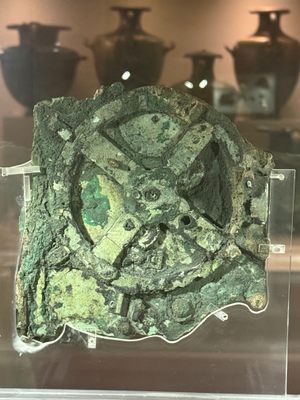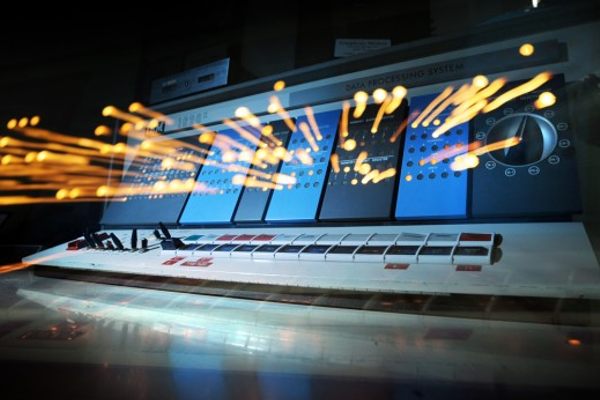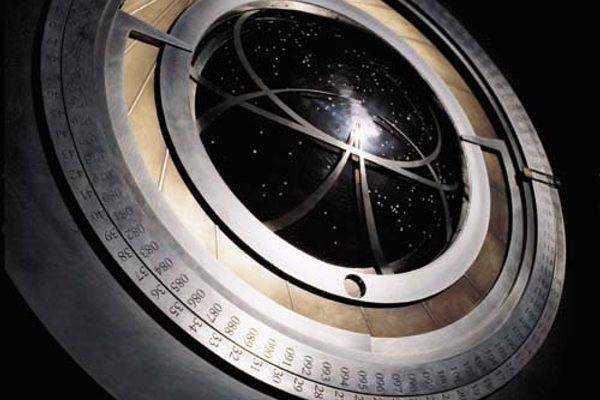About
For over 2,000 years, a shipwreck lay off the coast of the Greek island of Antikythera, its hidden treasures slowly corroded by the Mediterranean. It wasn't until 1900 that sponge divers happened upon the loot, and found therein a perplexing device of remarkable engineering - though the divers had no idea how truly remarkable it was at the time. The device sat in a museum for fifty years before historians began to take a serious look at it.
Known as the Antikythera mechanism and called a "clockwork computer," this small bronze instrument is unique because it precedes any machine of comparable complexity by more than a millennium.
The mechanism was built circa 200 B.C., and, with over 30 gears hidden behind its dials, it is easily the most advanced technological artifact of the pre-Christian period. Regarded as the first known analog computer, the mechanism can make precise calculations based on astronomical and mathematical principles developed by the ancient Greeks. Although its builder's identity and what it was doing aboard a ship remain mysteries, scientists have worked for a century to piece together the mechanism's history.
Somewhat surprisingly, most consider it unlikely that the Antikythera mechanism was a navigational tool. The harsh environment at sea would have presented a danger to the instrument's delicate gears, and features such as eclipse predictions are unnecessary for navigation. The mechanism's small size, however, does suggest that it was designed with portability in mind. According to some researchers, a more plausible story is that the mechanism was used to teach astronomy to those with little knowledge of the subject.
To use the instrument, you would simply enter a date using a crank, and, when the gears stopped spinning, a wealth of information appeared at your fingertips: the positions of the Sun, Moon, planets, and stars, the lunar phase, the dates of upcoming solar eclipses, the speed of the Moon through the sky, and even the dates of the Olympic games. Perhaps most impressively, the mechanism's calendar dial could compensate for the extra quarter-day in the astronomical year by turning the scale back one day every four years. The Julian calendar, which was the first in the region to include leap years, was not introduced until decades after the instrument was built.
While the Antikythera mechanism is the only known artifact of its kind, its precise engineering and the fact that similar instruments were described in contemporary writing lend strong support to the notion that it was not unique. It is thought that the famous inventor Archimedes of Syracuse constructed comparable devices. Some believe that the instrument came from the school of the astronomer Hipparchus. Whoever the builder was, they were likely Greek, as evidenced by the written instructions that are attached to the instrument's face.
Today, the Antikythera mechanism is housed in the Bronze Collection of the National Archaeological Museum of Athens. A replica of the mechanism is also on view at the American Computer Museum in Bozeman, Montana. When Jacques-Yves Cousteau made his last visit to the shipwreck in 1978, he found no additional pieces. Nevertheless, the device continues to reveal its secrets to the researchers of the Antikythera Mechanism Research Project, an international effort supported by various universities and technology companies.
Related Tags
Community Contributors
Added By
Published
February 12, 2010





















































